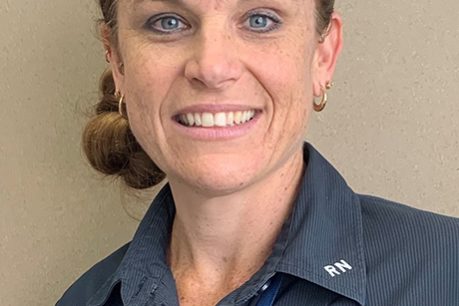Shannon Wallis MACN ¬– MeCare Nurse Unit Manager at West Moreton Hospital and Health Service – is reshaping the delivery of care to improve the health outcomes for patients in Regional Queensland. Shannon’s leadership of the MeCare program, which uses innovative technology to allow patients to be virtually monitored in their homes without the need to present to hospital, has seen her nominated as a Finalist in the 2020 Health Minister’s Award for Nursing Trailblazers. As part of our Meet Your Trailblazers Series, Shannon explains the background behind the MeCare Program, the benefits it has to the health and aged care system and how it supports patients to achieve their personalised health goals. Show your support for Shannon and the other Trailblazers Finalists Matiu Bush and Lorna Cook MACN by registering to attend the free virtual event ceremony on 23 November 2020.
-
Placing technology at the forefront of health solutions
MeCare, short for Mobile Enabled Care, is a program delivered exclusively within the West Moreton Health District in partnership with Philips Healthcare Australia where a multi-disciplinary team of nurses, specialist physician, pharmacist and social worker work in collaboration with general practitioners (GP’s) to monitor their health and wellbeing of consumers in their own home.
“The MeCare team use a “patient as partner” approach when delivering the model of care. The outcomes include improved mental health and wellbeing, increased activation in their health care, and better co-ordination within primary care providers,” Shannon explains.
“The patients use blue toothed enabled remote monitoring devices to perform their clinical measurements including blood pressure, oxygen saturations, blood glucose levels and weight. Patients are also able to report how they are feeling through surveys and assessment tools that are delivered electronically through the virtual care platform. The MeCare clinical team can then work with patients to track their health status and support them to initiate a locally negotiated management plan which can avoid any unnecessary trips to hospital.”
-
An innovative solution to health challenges
Shannon highlighted that the MeCare model of care was introduced in 2016 to deliver a scalable innovative solution to better manage net growing burden of chronic disease within West Moreton Health and is the first of its kind in Australia.
“Since the introduction of MeCare, West Moreton has seen a reduction in ED presentations up to 30%, a 28% reduction in potentially preventable hospitalisations across the cohort of enrolled patients and the best part is that patients report increased confidence and improved mental health,” Shannon says.
“I think technology is the best way to transform the way we deliver care and in turn will increase value to our patients and enable us to spread our existing resources further. Ensuring that nurses are leading the way to cultivating a learning culture is an important part of the future for healthcare”.
-
Placing personalised goals at the centre of care
At the core of the MeCare program is a personalised approach to match and understand the holistic and individual needs of the patient.
“The MeCare staff utilise the telehealth and video conferencing capability to provide health coaching and focus on encouraging and supporting behavioural change by empowering patients to self-manage and promote wellness,” Shannon explains.
“It is about being able to meet patients where they are in their care journey and offering personalised care. The staff work with patients to understand their health goals and build confidence to achieve them”.
“Understanding and measuring what is important to the patient enables the MeCare team to promote shared decision making, self-management and behaviour change so that patients can manage their own health”.
-
The future ahead
In conclusion, Shannon shared with us what the future holds for Virtual Care within the West Moreton Health Service.
“MeCare was the first virtual care program in Australia and we have cared for over 500 chronic disease patient’s over the last four years in their own home,” she says.
“The exciting thing is that West Moreton now delivers virtual programs for medication titration for heart failure patients in the Heart Health Hub, acute virtual care beds in the Hospital in the Home (HITH) service, and virtual care for pregnant women with gestational diabetes,” she says.
“Virtual care allows clinicians to review patient’s health data in real time and this enables us to review and understand the health value for our patients. If there is something that isn’t working well, we can really quickly and accurately change the way we do things to ensure safe and quality care is provided.”
“It is exciting that nurses have the opportunity to explore how virtual care can be used to deliver health care in our digital world. Nurses are able to increase efficiencies, improve patient outcomes and promote personalised care for patients in their own home”.





